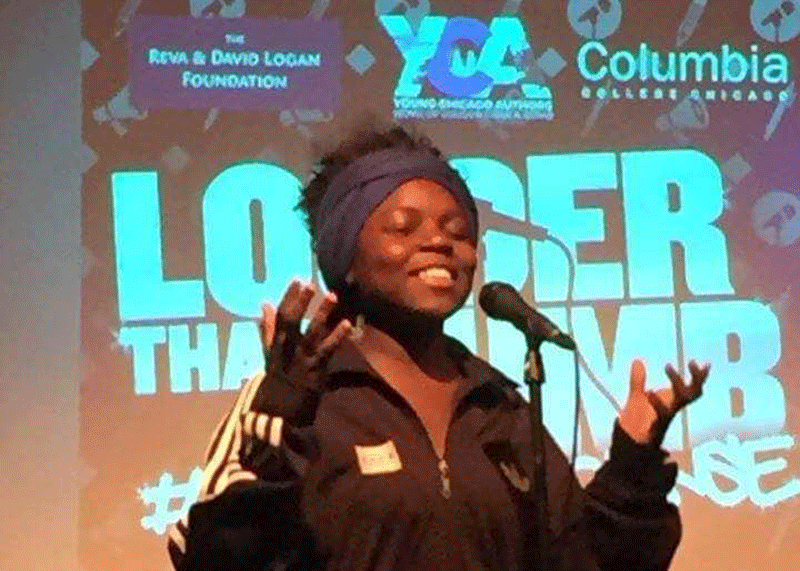[youtube]https://youtu.be/rJcJuK5VoPg[/youtube]
Walking through the hallways at West, it’s not difficult to spot senior Subbi “Charlotte” Namakula strutting down the halls, wearing her usual patterned clothing in an array of bright colors. Along with the vibrant colors, Namakula always has a goofy expression on her face
When Namakula was twelve years old, she moved to America from East African Kingdom, Buganda. Due to her young age, the switch overseas wasn’t initially a big deal to her, however, the difference between the two countries was very distinct from the start.
“It’s not as big a deal as people think it is. I mean, in Buganda we have Facebook and all the other things we might have here,” she said. “When I came here, it was big culture shock for me, considering I was very young. There was a lot of difference around me. Buganda and America are very different. In Bugunda, people are very sheltered and stay within their own communities. But here, there are so many different forces of culture attacking you all the time.”
“Charlotte” is the name that her parents gave her when they moved to the United States. Subbi accepted the name Charlotte until she realized that she didn’t care about what other people thought about her and proudly introduced herself by her birth name.
Namakula takes part on debate team, poetry slam, H2O club, GSA, as well as many other clubs she had joined in her four years at West.
“I’ve always been really involved in school,” Namakula said. “My freshman year, I would just fly into every club after school because I didn’t want to go home.”
Despite her obvious enjoyment in everything that she does, Namakula’s favorite thing is A Tribe Called West, the poetry slam team that she works with.
“Poetry slam is definitely my favorite,” she said. “I feel that I’m a very expressive person, and nothing gives me more freedom of expression than poetry. Art gives me that too, but you have to do it a certain way, otherwise it looks horrible.”
She first joined the team her sophomore year of high school, after the poetry slam coach Paul Bellwoar found some of her work in one of his classes.
“Mr. B found me when I was a freshman, and then I joined when I was a sophomore,” Subbi said. “I was in his creative writing class, and then, at the very end of second semester, I wrote this piece about bullying, and he came up to me and said, ‘We need you on the team!'”
Other members of a Tribe Called West see Namakula as an essential member of their team.
“I think that she’s kind of the glue of the team; she holds everyone together,” junior Phong Lai said. “At the same time, she always gives really good advice on how to improve a poem. Overall, she’s just a great person.”
According to Bellwoar, Namakula has contributed many different things and has been a valuable asset to their team.
“She’s brought in a voice like nobody else we’ve ever had. And by that, I mean from her experience as an immigrant and her experiences living in Africa, her exceptional intelligence and her willingness to work hard, and her desire to get involved in the spoken word community as much as she can,” Bellwoar said. “She’s been a valuable part [of the team] and it’s been my pleasure to watch her grow in the past three years.”
Namakula’s heritage is very evident through her poetry and many of her stories center around things that she did back in Buganda.
“I feel like my life in America has been super boring,” Namakula said. “There are just more things to write about [from Buganda] because it’s such an earthy, green country. People would just sit around a campfire and tell stories.”
Upon her graduation from West, she plans on attending the University of Iowa and majoring in creative writing.
“I thought I wanted to be a lawyer. I spent so much time looking at these good law schools, but then I realized that I don’t have the attention span to be a lawyer,” she said. “So, I decided that I really liked writing. I always figured that if I became a writer, I wouldn’t have a job and I’d end up becoming a starving artist. But over the summer, I meet a bunch of people who made a career in writing, and were actually doing really well for themselves.”


